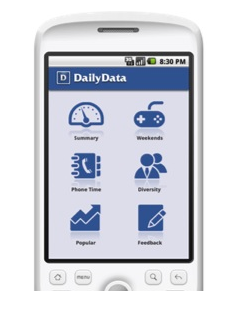 Social behavior analysis startup Ginger.io recently announced $1.7 million in its first round of funding. The start-up, which was born out of MIT's Media Lab, is developing software for mobile devices that aims to give pharma companies and providers detailed data on patient behavior to more effectively target new drugs and therapies.
Social behavior analysis startup Ginger.io recently announced $1.7 million in its first round of funding. The start-up, which was born out of MIT's Media Lab, is developing software for mobile devices that aims to give pharma companies and providers detailed data on patient behavior to more effectively target new drugs and therapies.
The round was led by Silicon Valley-based True Ventures and also included Kapor Capital, Romulus Capital, and angel investors Bill Warner, Walt Winshall, James Joaquin, and Ty Curry.
A report by Gregory Huang at Xconomy offers some good insight into the company's business model and future potential. Ginger.io isn't developing a consumer health and wellness app -- instead, it's a BtoB play:
"A mobile phone can provide crucial information about its owner’s activity level, location, and communication patterns—all in real time, more or less (assuming the person opts in)," Huang writes. "That information could be valuable to drug makers and hospitals looking to track the results of clinical trials, market medications to certain types of patients, or design new therapies for things like diabetes, obesity, or brain disorders."
Insights gathered from noticing how a target population's behavior varies due to a new drug or therapy could prove very valuable to companies. Ginger is currently working with healthcare providers and two of the “top five” pharma companies. The startup's technology has also been used to study inflammatory bowel disease by Cincinnati Children’s Hospital.
Ginger.io has a similar focus to other MIT Media Lab-born companies like Affectiva, which aims to quantifiably analyze emotions to improve consumer experiences. Affectiva offers Affdex, an emotion recognition software, and the Q Sensor, a wrist sensor which measures electrodermal activity (EDA), motion and temperature to quantify emotion.The Affdex software uses a computer’s webcam to read emotional states via non-verbal responses such as facial expressions.
Want to read stories as soon as they are posted? Follow MobiHealthNews on Facebook.
On Twitter? Be sure to follow MobiHealthNews for up-to-the-minute news and industry analysis.
For more, read the Xconomy article here.















